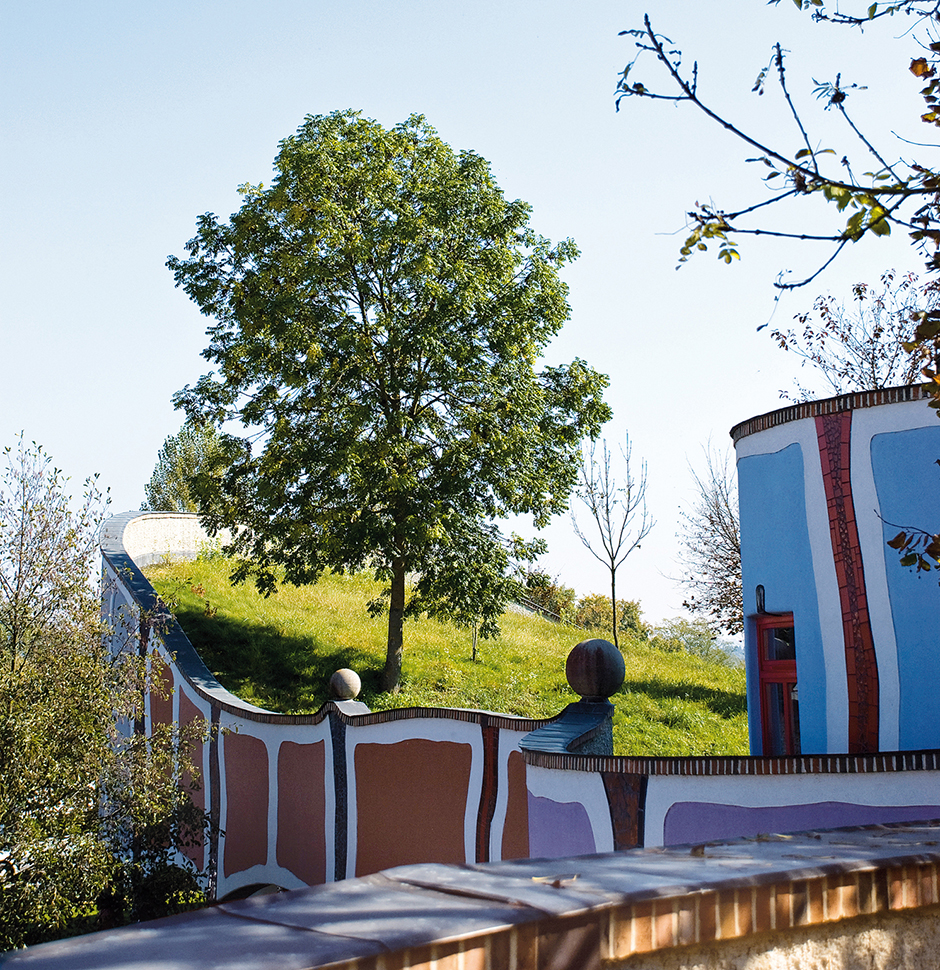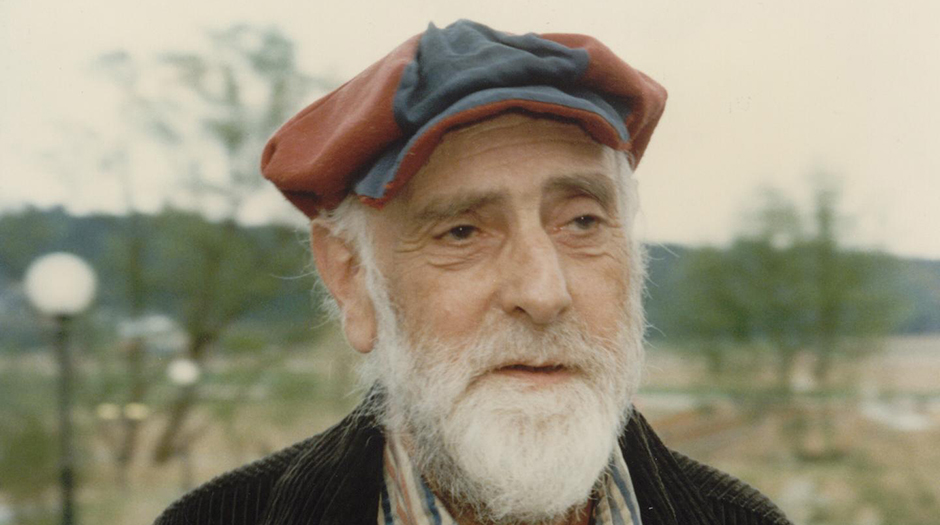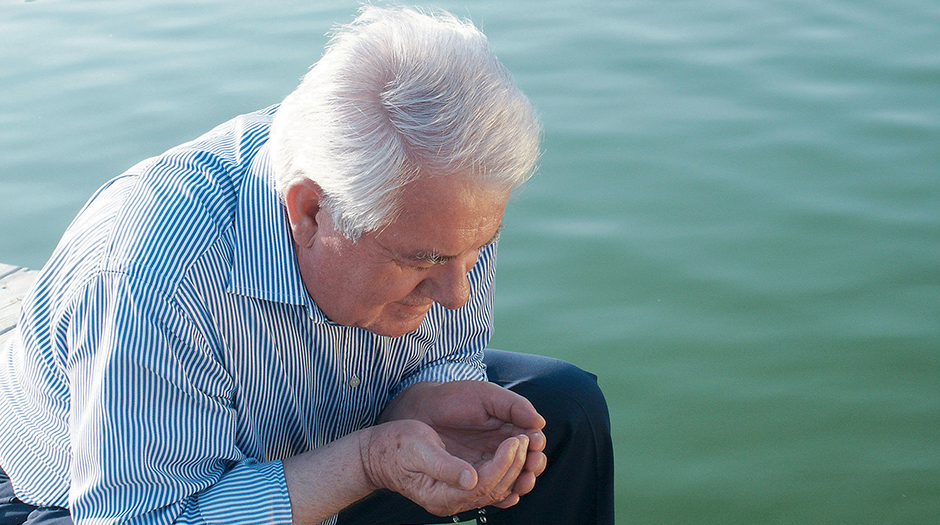

Friedensreich Hundertwasser
Life in harmony with nature – this was the vision of the Austrian artist Friedensreich Hundertwasser (*15.12.1928, †19.2.2000). Rogner Bad Blumau was one of the places where he realised this vision in architecture.
Born Friedrich Stowasser, he changed his surname to Hundertwasser in 1950, and 10 years later his first name to Friedensreich.
Friedensreich Hundertwasser began his career as a painter and later also became an ecologist and building designer. On his numerous travels around the world he collected many ideas, experiences and insights which he used to redesign buildings and design new houses. Friedensreich Hundertwasser did not think of himself as an architect, rather as a healer of ailing architecture.
Until his death on February 19th, 2000, Friedensreich Hundertwasser spent most of his time in his adopted home country New Zealand where he was buried in his Garden of the Happy Dead under a tulip tree – in harmony with nature.
“The chemistry between us was right from the start. It’s a feeling. Many have told of Hundertwasser’s stubbornness and intransigence when he creates his works of art. Nothing of that was true here. He created his design, our architects and civil engineers made sure that it was ‘technically feasible’ and when changes were necessary, we calmly discussed them to find a solution we both agreed on”. Robert Rogner Sr.
Implementation of Friedensreich Hundertwasser’s philosophyPhilosophy of Rogner Bad Blumau
We trust and live
Our values
Aware
Everyone is aware of their responsibility
Honest
To be honest and respectful of ourselves, and our fellow humans
With joy
Those working with joy are motivated, achieve better results, have fun in life and are successful
Our Guidelines
Home to both guests and members of our staff
Undeniably relaxing
Members of our staff work together as a team
Astounding art and architecture by Friedensreich Hundertwasser
Nature – life in harmony with nature
Easy-going, imaginative and at one with nature – these are our values and this is what the architecture of Hundertwasser conveys.
Philosophy of the Rogner family
The success of the company Rogner cannot be separated from the history of the Rogner family.
It all began when Councillor of Commerce Robert Rogner founded his own company on March 11th, 1968 and realised several tourism projects. It started with overseeing the construction of several tourism complexes and steadily expanded. Success is not a matter of chance. In the long run, the philosophy and concept behind a company are important. The concept of Rogner is clear – everything from one source – planning, constructing, and managing a business. The advantages are obvious: those who plan a hotel and later also manage it know right from the start where potential problems could arise, and thus know how to plan in the ideal solution. This strategy paid off: Rogner already made profit where others still made a loss. Another important point of Rogner’s philosophy is not to keep repeating successful creations. Each project needs to be specially adapted to its surrounding. Landscape, culture, economy, tradition and climate are just a few of the factors that need to be considered. Individual creativity, and the most thorough research prior to the actual planning stage are the secrets of Rogner’s success, just as much as the continuous challenge of finding new solutions to old problems. Rogner’s work has many facets e.g. the idea of a holiday village as a new form of holidaymaking, the “Sünnhof” as an example of renovating an old town under urban heritage conservation, or the “Ananas” (pineapple) as the first hotel with an integrated bus garage as an example of innovation in tourism. The Rogner hotels are characterized by the high quality of their facilities, and to give each of them their special flair, Rogner had the idea of working together with artists. For example, Rogner Bad Blumau was planned and constructed with Friedensreich Hundertwasser.
With each successfully completed project the knowledge of the company grows, its innovation making the company Rogner internationally renowned as it paves its way in tourism.


